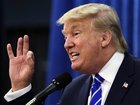Spotlight
President Joseph Aoun noted Tuesday that “Shiites are not the only ones threatened, but rather entire Lebanon,” reiterating that “if one of us loses, we all lose.”
“We have very big opportunities that we must seize together and there is no time to waste,” Aoun told a delegation from the Higher Islamic Shiite Council led by Sheikh Ali al-Khatib.
 Full Story
Full Story
Free Patriotic Movement chief Jebran Bassil has said that his bloc voted for Nawaf Salam in the binding consultations to pick a new PM due to his “reformist characteristics” and “the presence of consensus over him.”
 Full Story
Full Story
Lebanon's new prime minister pledged Tuesday to extend state authority over all Lebanese soil after a November ceasefire ended a war between Hezbollah and Israel.
Nawaf Salam, in his first speech, said he would "extend the authority of the Lebanese state across all its territory" and "work seriously to completely implement U.N. resolution 1701" calling for Hezbollah to withdraw from south Lebanon.
 Full Story
Full Story
Lebanese Forces leader Samir Geagea has responded to the remarks that MP Mohammad Raad voiced Monday at the Baabda Palace, saying there was no “exclusion” in the designation of Nawaf Salam as premier.
 Full Story
Full Story
The Special Coordinator for Lebanon, Jeanine Hennis-Plasschaert welcomed the election of Joseph Aoun as Lebanon’s new President, expressing hope that it would act as "the kick-start Lebanon desperately needs for institution-strengthening and the enactment of critical reforms".
Noting the steep drop-off in violence following the entry into force of the cessation of hostilities on 27 November, Hennis-Plasschaert relayed Monday that some progress was being made with respect to Israeli withdrawal from and Lebanese redeployment to positions in southern Lebanon, while adding that more works needed to be done.
 Full Story
Full Story
Prominent Lebanese diplomat and judge Nawaf Salam was named PM-designate on Monday after he won sweeping support from legislators, as Hezbollah accused some parties of "staging an ambush aimed at disintegration, partitioning, elimination and exclusion."
The Presidency, which issued a decree naming Salam as PM-designate, said the latter received 84 votes as caretaker PM Najib Mikati received only nine votes and 35 MPs refrained from naming anyone.
 Full Story
Full Story
Hezbollah’s Loyalty to Resistance bloc on Monday asked President Joseph Aoun to postpone its consultations meeting with him until Tuesday before eventually reversing its decision, the state-run National News Agency and Lebanese and Arab TV networks said.
 Full Story
Full Story
President Joseph Aoun met Monday at the Baabda Palace with a U.S. military delegation, hours after Israel carried out violent airstrikes deep in south Lebanon and on the country’s border with Syria.
 Full Story
Full Story
U.S. President-elect Donald Trump’s associates have made it clear in talks with senior Israeli officials that Trump is interested in calm in the Middle East in order to focus on domestic issues, Israel’s Channel 12 has reported.
 Full Story
Full Story
President Joseph Aoun announced Saturday that he has not come to "work in politics, but rather to build a state."
 Full Story
Full Story




